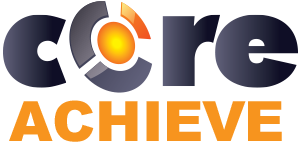The Why and How of Training Soft Skills
May, 04 2023
Other posts:
Enhancing Team Dynamics for Effective Group Decision-Making with LMS Integration
Organizations increasingly rely on collaborative efforts to solve complex problems, innovate, and adapt to change, but how do we ensure that collaboration is happening.
Maximizing Small Business Potential with Training Technology
Training technologies can push small businesses ahead of their competitors, but what are the factors that go into choosing the right technology?
Unlocking Employee Potential: The Transformative Benefits of an Interactive Learning Management System (LMS)
Interactive training allows for unlocking employee potential, but how is it done?
Building a Robust Sales Pipeline with Training
Every organization wants a streamlined sales pipeline, but building one requires a series of interlocking activities with one of the most important being training.
Strategies for Adapting In-Person Training to Online Platforms
Online training is one of the most flexible ways of delivering training across organizations, but how do you even begin to adapt in-person training into online?
What's the difference between "soft" and "hard" skills? Hard skills are the more technical skills of an organization like operating machinery or software. Soft skills, on the other hand, are more of the interpersonal aspect of organizations.
It’s difficult to qualify and quantify all the skills that people within an organization use daily, but, for broad purposes, skills can be divided into either “soft” or “hard.” Hard skills are simple to define, they are skills like if someone knows a programming language or operate a machine. Soft skills, on the other hand, are non-technical skills that are more subjective and difficult to quantify but are often more important.
The importance of soft skills is part of the reason why they are elusive, skills like leadership or collaboration have massive impacts on projects but are much more difficult to define than, say, someone’s troubleshooting abilities.
The immaterialness of soft skills is because they are inherently difficult to measure compared to the technicality of hard skills. Testing could easily determine how good someone is at math, but could it accurately measure how well someone leads?
The (Biggest) Problem with Training Soft Skills
Soft skills can have a massive sway on how effective an organization is, but, because of their adaptability, they are extremely difficult to measure and therefore hard to train. While questions can be faulty, they provide a baseline for how effective the training was or how much the learners have retained—not very useful when it comes to something like leadership.
Lacking measurability does not mean that soft skills can’t be trained or shouldn’t be, rather, they just need to be trained differently.
Breaking Training Conventions
Data is incredibly useful in training, one can gleam insights, track progression, and make their training more efficient, it shouldn’t be surprising that data would magnetize trainers. Yet, for increasingly important soft skills, trainers need to pull themselves away from data and move towards a more personable approach.
Approaching Soft Skills
Incorporating a tool like a Learning Management System (LMS) into training soft skills will make the process more efficient for both the trainer and learner. While an LMS may seem more suited for training hard skills, it can easily be adapted to soft skills, if its content is designed in the proper way.
Content soft skills needs to reflect the nature of soft skills, that being personal and flexible. There are wrong answers to a math problem but certainly no completely right answers to a leadership problem. Put learners into gray situations with multiple outcomes, don’t force one answer. Soft skills are very personable, treat the situations as such.
Tips for Using an LMS to Train Soft Skills
The first step to training soft skills is to define goals, how does the organization want leaders to act or teams to collaborate? The answers to those questions will define the situations and their framing.
Utilize Interactivity
Soft skills can vary massively in how people use them and, as such, the training should reflect this. Make situations that gives more control to the learner and make multiple ways to the desired outcome.
Peer Coaching and Mentoring
Use the LMS to facilitate interactions with peers, so they can learn soft skills in a controlled environment rather than in a place that could affect productivity. Soft skills are mostly social, so make the training social as well.
Soft Skills Will Only Become More Necessary
As technology moves inevitably to automation of hard skills, their soft counterparts will be more and more necessary. If two organizations have the same automated tools, but only one has a team that’s more efficient at leadership, communication, and collaboration, they’ll come out ahead. Soft skills are going to become the standout abilities in the near (if not already here) future.
Get started with CoreAchieve for free.
Photo by Brooke Cagle on Unsplash

Leave comment: